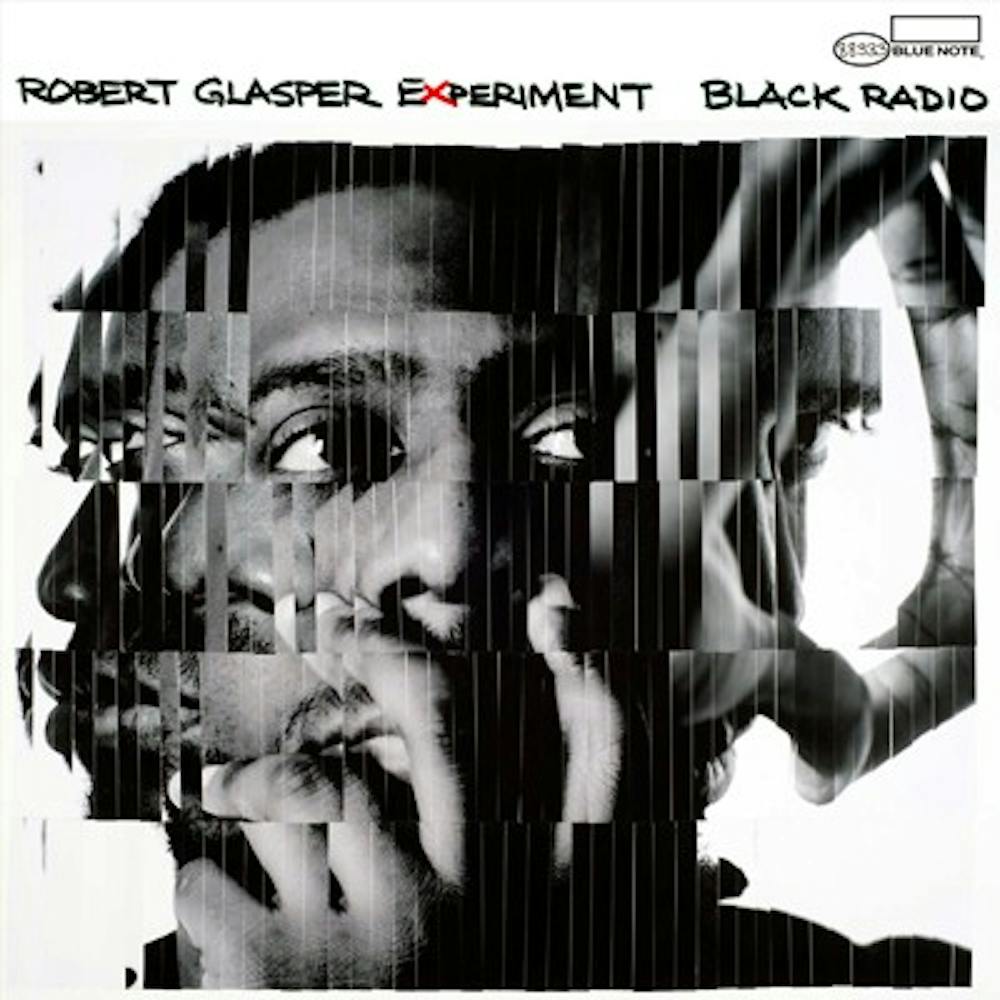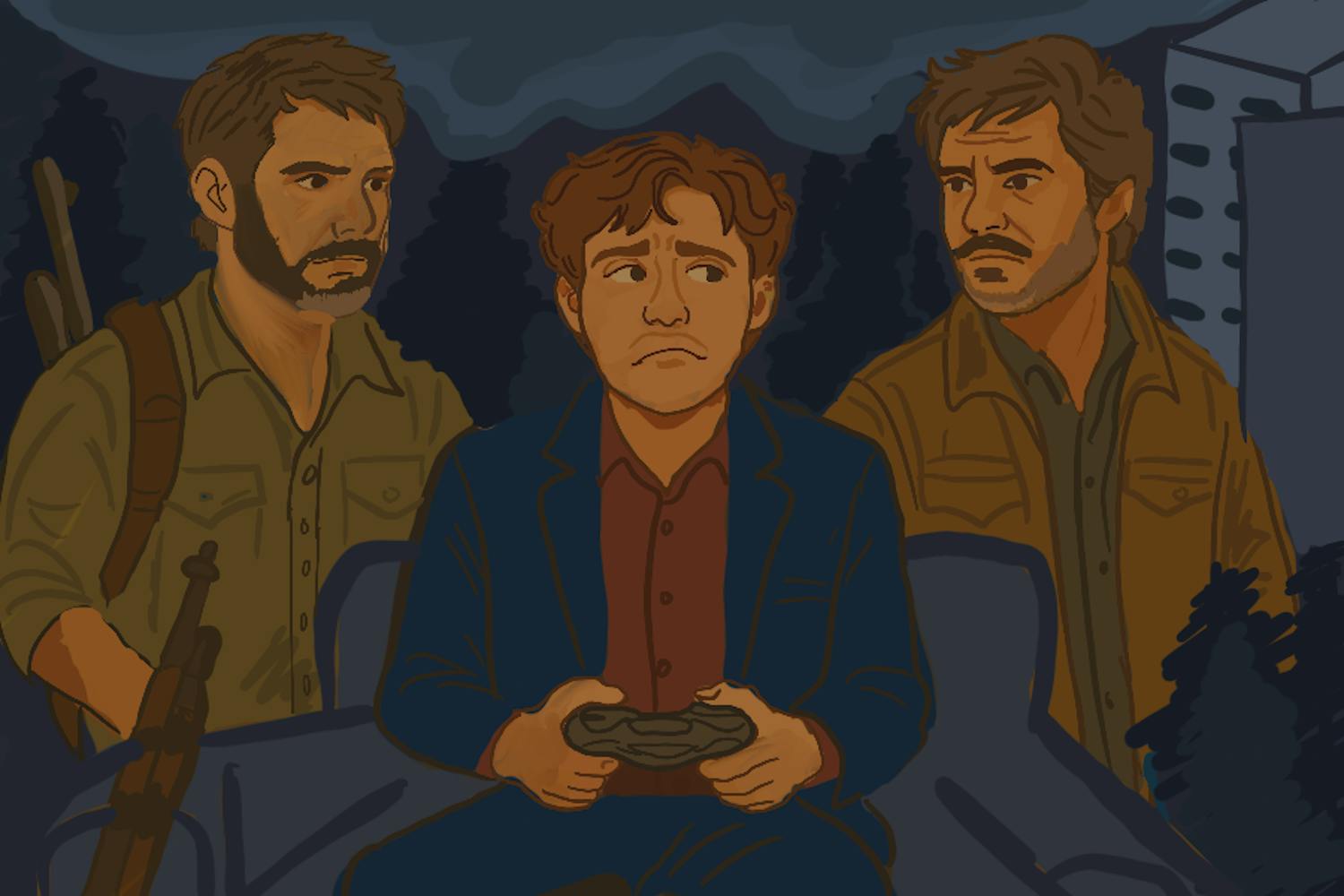Released: Feb. 28
Pitchforks: 5/5
While its title is “Black Radio,” indigo would be a more appropriate color to describe the mood of the Robert Glasper Experiment’s new album, which transcends genres as it delivers soulful grooves.
Raised in Houston, Robert Glasper honed his musical chops by playing gospel music in church. He broke into New York’s music scene as a jazz musician, and his initial albums briefly flirted with hip-hop.
In the meantime, he made his way around the urban music scene, backing artists such as Mos Def and Q-Tip and later jamming with the likes of The Roots and Kanye West.
His last album, “Double Booked,” represented a major step in bridging these realms, as it is evenly divided between his acoustic trio and the debut of his hip-hop/jazz fusion, Experiment.
However, where “Double Booked” presents split personas, “Black Radio” is more cohesive. Rather than vacillating between the landscapes of hip-hop, soul, jazz, R&B and rock, “Black Radio” synthesizes all of them into an aesthetic that refuses to be encumbered by traditional boundaries of musical categorization.
The album’s beats and basslines are clearly products of hip-hop, its soulful vocals come straight from R&B and many of its harmonic, rhythmic and melodic intricacies are pure jazz.
While the Experiment freely makes use of production effects typical of pop and rock, the band stays grounded in the musicianship paramount to the jazz tradition.
Glasper eschews the drum and keyboard loops typical of modern R&B and hip-hop in favor of a live band on every track, creating an organic feel and sense of personality absent in perfect, mechanically manipulated backing tracks.
The core of the Experiment (Glasper on keys, Casey Benjamin on sax and vocoder, Derrick Hodge on bass and Chris Dave on drums) provides consistency throughout “Black Radio.”
A stunning myriad of guest vocalists, including Erykah Badu, Bilal, Lupe Fiasco, Lalah Hathaway, Shafiq Husayn, KING, Ledisi, Chrisette Michele, Musiq Soulchild, Meshell Ndegeocello, Stokley Williams and Mos Def, brings freshness to each track.
The album’s third track, “Cherish the Day,” perhaps best encapsulates it's sound. Dave’s drumming brings to life a beat that might seem trite on a drum machine, and Benjamin’s harsh vocoder contrasts eerily with Hathaway’s smooth vocals. The searing bebop-charged, effect-ridden saxophone solo also provides a gratifying third dimension.
Other highlights on the album are Glasper’s piano solo dancing above the insistent repetition of KING’s vocals in “Move Love,” the journey in layered vocal textures over Chris Dave’s off-kilter drum fills in “Ah Yeah,” and the driving build and slow decline of the title track behind the rhymes of Mos Def.
The term “black radio” refers to the resilient black boxes in commercial aircraft, a metaphor for the endurance of good music even as the industry plummets. Considering that every musician on the album is African-American, the phrase also works to pay homage to traditionally black forms of music.
In addition to original material, “Black Radio” includes reworked versions of a surprising variety of songs, from the jazz standard “Afro Blue” and Sade’s “Cherish the Day” to David Bowie’s “Letter to Hermione” and Nirvana’s “Smells Like Teen Spirit.”
The closing track, “Smells Like Teen Spirit,” best displays the band’s musical prowess as it surveys musical landscapes among Benjamin’s soaring vocoder, Glasper’s satisfying re-harmonizations and Dave’s mind-bending syncopations weaving in and out of the beat.
At the end of “Gonna Be Alright,” the band members provide a little bit of their musical philosophy over a low-key beat. They lament modern perceptions of jazz musicians as one-dimensional and self-serving, the emphasis on popularity over musicianship in modern music and the power that record bigwigs wield over what’s on the radio.
As the track fades, the last words are “The best thing you can do for people, I think, is just be honest, man.”
While the Robert Glasper Experiment’s new album may not fit neatly into preconceived musical genres, perhaps Duke Ellington had the right idea when he said: “There are two kinds of music. Good music, and the other kind.” If that’s true, “Black Radio” is certainly the former.
Reach the reporter at bscolaro@asu.edu
Click here to subscribe to the daily State Press newsletter.





